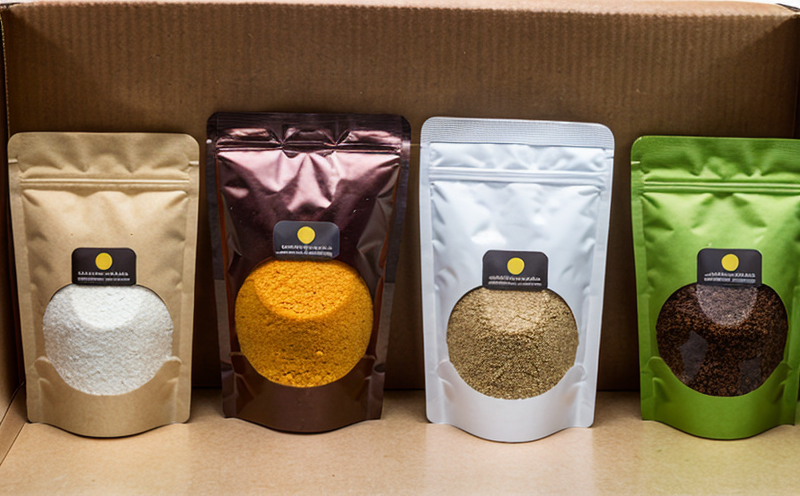Moisture Resistance Testing of Food Contact Materials
The integrity and safety of food contact materials (FCMs) are paramount in ensuring consumer health and satisfaction. Moisture resistance testing plays a crucial role in evaluating the ability of FCMs to prevent moisture ingress, which can lead to contamination or changes in product quality. This service ensures that packaging and other FCMs meet strict regulatory requirements set forth by organizations such as the FDA (Food and Drug Administration) and EU regulations.
Moisture resistance testing is essential for several reasons. First, it helps in maintaining the freshness of food products by preventing moisture from entering the package. This prevents spoilage due to mold or bacterial growth, which can compromise both product quality and safety. Second, it ensures that the flavor and texture of the food remain intact throughout its shelf life. Lastly, it contributes to consumer confidence by aligning with rigorous health standards.
Our state-of-the-art laboratory uses industry-standard equipment like permeation chambers and gravimetric methods to conduct these tests accurately. The testing process involves exposing FCMs to controlled moisture environments for extended periods under various conditions to simulate real-world scenarios. This includes temperature, humidity, and other environmental factors that could affect the material's performance.
Once tested, our experts analyze the results meticulously to determine if the FCM meets the specified moisture resistance criteria. Compliance with standards such as ISO 15026-4:2013 or ASTM D7923 ensures that the materials are safe for direct contact with food without compromising its quality.
Our comprehensive approach also includes advising clients on potential improvements in their FCMs based on test outcomes. This proactive stance helps maintain high standards of product safety and quality, which is essential for any company operating within this sector.
Why It Matters
The importance of moisture resistance testing cannot be overstated in the realm of food contact materials. Moisture ingress can lead to several detrimental effects on both the packaging and the contents it protects. These include:
- Contamination Risks: Water vapor can carry contaminants that could affect the safety of the product.
- Quality Degradation: Products like bread or cakes, which are sensitive to moisture changes, may lose their texture and taste.
- Cross-Contamination: Moisture can cause flavors and aromas from one product to transfer to another within the same package.
In addition to these immediate concerns, there are long-term implications as well. Persistent moisture issues can lead to increased waste rates due to compromised products reaching consumers in poor condition. Moreover, they pose significant challenges for businesses aiming to comply with stringent food safety regulations worldwide.
Eurolab Advantages
At Eurolab, we pride ourselves on delivering unparalleled expertise and reliability when it comes to moisture resistance testing of food contact materials. Our team of experienced professionals ensures that every test is conducted according to the highest industry standards using advanced analytical tools.
- Industry Leadership: We are at the forefront of innovation, constantly updating our methodologies based on latest scientific findings and regulatory changes.
- Comprehensive Reporting: Our detailed reports not only provide numerical results but also offer valuable insights into how to enhance your product's performance.
- Client-Centric Approach: Understanding each client’s unique needs allows us to tailor our services accordingly, ensuring maximum benefit from every test conducted.
- Digital Solutions: Leveraging cutting-edge technology, we offer digital tools for easier tracking and management of your projects.
By choosing Eurolab for your moisture resistance testing needs, you can rest assured that your products will meet the highest safety standards while maintaining their quality throughout storage and distribution processes.
Use Cases and Application Examples
The application of moisture resistance testing extends beyond just ensuring food safety; it encompasses a broader scope that includes enhancing the overall quality assurance process. Here are some specific instances:
- Bakery Products: Ensuring that bread, pastries, and cakes retain their freshness longer.
- Dairy Products: Maintaining the consistency of milk, cheese, and yogurt during transport.
- Fruit & Vegetable Packaging: Preventing premature wilting or spoilage by keeping produce at optimal moisture levels.
These tests are not just beneficial for manufacturers but also crucial for retailers who aim to extend the shelf life of their products, thereby reducing waste and increasing customer satisfaction.





